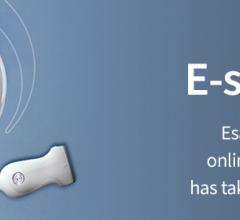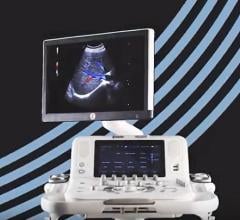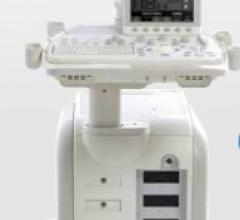If you enjoy this content, please share it with a colleague

Esaote North America
RELATED CONTENT
September 27, 2021 — Esaote, an Italian company leader in the biomedical equipment sector – ultrasound, MRI and software ...
January 20, 2021 — Esaote North America announces that the MyLab X8 Ultrasound System has now been approved in Canada.
...
July 31, 2020 — In the thick of the COVID-19 emergency, Esaote, an Italian world leader in dedicated ultrasound and magn ...
April 2, 2020 — Esaote, an Italian company among the world leaders in the field of medical diagnostic imaging systems ...
DiA Imaging Analysis has partnered with the Italian healthcare IT company Ebit (Esaote Group), to offer DiA’s LVivo Cardiac Toolbox as an integrated part of Ebit's Suitestensa CVIS (cardiovascular information system). The LVivo Cardiac Toolbox is designed to analyze cardiac ultrasound images based on more objective and reproducible information, as opposed to manual measurement or visual analysis methods that are currently being used.
Esaote announced the launch of MyLab X8, a high-performance, versatile ultrasound platform to support hospitals and clinics facing today’s challenges, at the 2019 European Congress of Radiology (ECR), Feb. 27-March 3 in Vienna, Austria.
Medical imaging company Esaote and The BioRobotics Institute of Scuola Superiore Sant’Anna in Pisa, Italy, have developed a new robotic cell to help optimize the testing of ultrasound probes. The robotic cell, under the guidance of an operator, is able to direct the transducer and certify its effectiveness.
The acquisition of biomedical equipment company Esaote SpA’s share capital was completed on April 19, the company recently announced, by a consortium of leading Chinese investors. The consortium is composed of major companies in the medical and healthcare technology sectors, as well as investment funds with significant experience in this field.
October 24, 2017 — Esaote will launch Q-Spine, a technology that provides biometrics of the spine, at the North America ...
Esaote will introduce the MyLab Eight Ultrasound System at the 2016 annual meeting of the Radiological Society of North America (RSNA 2016), Nov. 27-Dec. 1 in Chicago.


 September 27, 2021
September 27, 2021 








